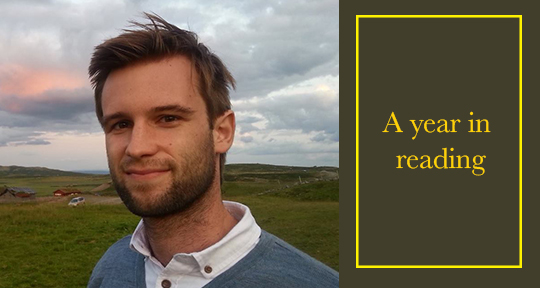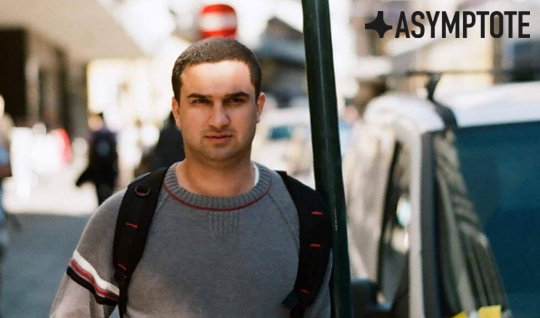Assistant Managing Editor Jacob Silkstone travelled between several countries and two distinct stages of his life in 2017—and still had time to read a ton of literature! Today, in our final column, he reflects on the books that accompanied him on the move.
* * *
“If I imagine something, I see it. What more would I do if I travelled? Only extreme feebleness of the imagination can justify anyone needing to travel in order to feel.”
The complete edition of Fernando Pessoa’s The Book of Disquiet (translated by the incomparable Margaret Jull Costa) finally became available to English readers in 2017, and I first read Bernardo Soares’ hodophobic lines in an Airbnb flat in Portugal at the 40-degree height of summer. The water supply had been temporarily cut off and for hours the taps dribbled a thin brown fluid, but I had Soares’ life “of slow rain in which everything is … half-shadow” to keep me occupied.
In a year that began with the Trump travel ban and continued to be marred by small, scared attempts to shelter from the world behind various walls (both real and imaginary), it seems worth playing Devil’s advocate to Soares/Pessoa: perhaps there can be some justification for travelling “in order to feel.”
This year, I moved between several countries and two distinct stages of my life—having finally proposed after nearly nine years in a relationship, I got married in July. The evening after the wedding, I gave my copy of The Ministry of Utmost Happiness away on a whim to one of our guests, a foreign correspondent working in the Middle East. That copy subsequently embarked on a journey Arundhati Roy would have been proud of, travelling from Beirut to Syria to Yemen. READ MORE…


